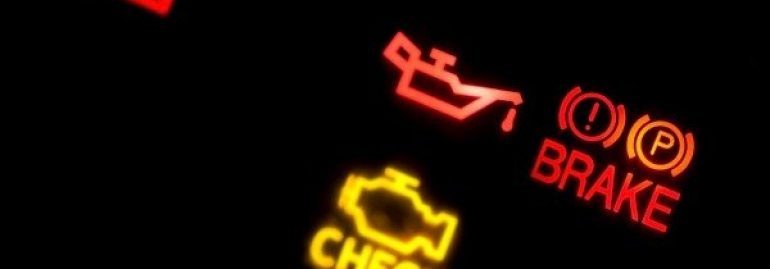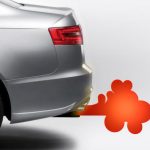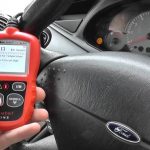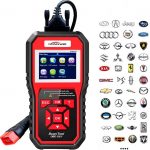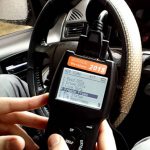Every vehicle made today has a lot of different parts to it. You’ll find that many of them are similar across all brands. You know, the engine, the battery, and other elements that are similar. Amidst those similarities, there are changes that are uniform in some ways. That comes in regards to the changes that were pushed by the EPA in 1996. After the push forward, car makers agreed to a standardized electronic system that could be diagnosed. While they are all not the exact same, there are elements that are easy to work with, and fix when the right tools are utilized. That’s where you will first hear about OBD2 codes and how they are used to help with car repair.
Going Back In Time
Before getting into what the codes are and how mechanics use them, consider how professionals repaired cars in the past. Many people in the past would have to figure out what was wrong with your car by ear, by experience, and whatever you told them.
There were elements that they could check, change, and try to fix, but there still may be something lurking underneath the hood. Even the most experienced of car repairmen would be stumped from time to time. When that happened, you would have to try and figure things out on your own, or try to find someone that was an expert in the model and year of your vehicle.
Those days are long gone, especially for vehicles that were made after 1996. The more modern a car is, the easier it is to figure out what is going awry. Mainly because it’s easy to use diagnostic tools today than in the past.
Diagnosing Problems With Vehicles
Think about a mechanic like a doctor. They look to check in on the elements of a car and make sure that things are running correctly. If they are ok, that’s it, you get to go home with it. But what if there’s something wrong? Well that’s when tests are conducted, much like people have to go through tests to figure out what is wrong with them. That being said, you’ll find that diagnosing problems today is much like going through medical testing.
A mechanic will use a device that can be handheld or connected to a computer known as a diagnostic tool. There are several options to consider in this category, and each one has a different set of elements that define what is going on with a car. Once this is attached to a vehicles electrical system, it spits out codes if there’s something wrong. It can run through all the major errors in the car, and can return with a thumbs up or a thumbs down.
When a mechanic is using this option, they’ll get what are known as OBD2 codes. These are standardized codes that direct a professional as to what is going on with a vehicle’s overall health. Some of these codes are brand specific, others are more general, but in the end, they point to where the problem is. Imagine a computer telling you that the RAM is corrupted. Or that your hard drive is full.
That’s the same thing that is going on here, and it’s making car repair a lot easier to manage from both sides of the proverbial coin. You’ll find that the reason why this is better is simple, there’s no second guessing. As stated above, in the past, mechanics had to figure out what was going on with cars based on sound, noise, and whatever you told them. Now, they can take that information, plug in a diagnostic tool that is on board, and figure out things with the codes that are spit out.
More On OBD2 Codes (MIL)
OBD2 stands for on-board diagnostic II. This is the second iteration of the tool set, and you can search that online. When you search for that online, you are going to get a list of tools that you can buy or download for your phone. These are helpful in figuring out what is wrong with your car. Now, there are professional solutions that must be purchased by mechanics in order to fix certain cars, but there are also consumer level options that you can buy to help you with minor fixes.
Whatever the case is, you’ll find that the codes are somewhat standardized across several different types of vehicle makes and models. If your car is modern, then you will be able to figure out what is going on based on the codes that are spit out. Some of the codes are as simple as numerical elements, while others are numerical and alphabetical overall. When you have the code, you can search what the issue is, and then apply a fix that is according to the problem.
Once you do that, you can check the diagnostic tool again and see if that’s the only problem. These are updated often, and they are comprehensive in regards to figuring out what is wrong with vehicles today.
Software Updates
One of the best things about codes today is that they are updated on a regular basis. Unlike traditional methods of fixing cars, there’s a certain amount of changes that go through the software of these devices on a regular basis. That means that if you have the most up to date iteration of a OBD tool, you will not run into any surprises as to whether or not something is awry with your vehicle. That’s a great thing, as it can showcase whether or not you need specialized tools, or if you are running into a problem that is newly discovered.
At the end of the day, this all gives mechanics an easier option to work with. It gives consumers a bit more information about their cars, and it saves money. It also helps with maintenance, peace of mind, and much more. With this in place, it’s just easier to work with cars, and that’s a great thing. It drops prices, and keeps cars on the road longer.


